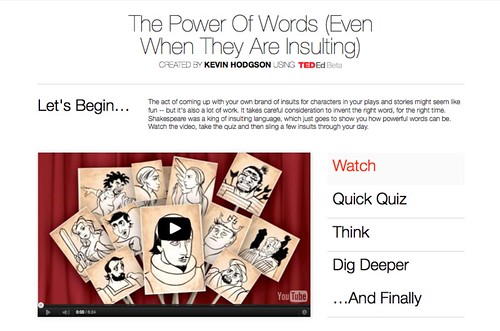This is the second in a series of three podcasts that captured a conversation I had at a local elementary school around technology. Part one was yesterday and it covered topics of outreach to the community and student engagement.
The second part of the podcast revolved around what we mean by digital literacies for young people, how this school (like mine) is shifting into interactive boards and what that means (or doesn’t yet mean) for the classroom, and then we moved into a really important part of the conversation: the idea that schools has an imperative to provide access to technology for ALL students and how equity has to be part of our conversations in schools.
Tomorrow, the last part of the podcast will be shared, and it covers some views around writing and ideas around how the modern world of media and technology is shaping our young people.
Peace (in the podcast),
Kevin

